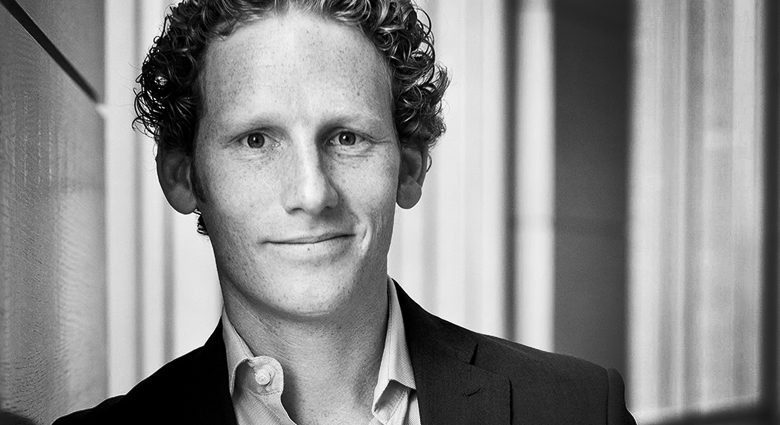Is personal quantification the next evolution of the Big Data revolution? And is our addiction to analytics leading us astray?
Three weeks ago, at approximately 10:32pm, Nike made me hit my dog in the face. Now before the ASPCA starts calling, it was a complete mistake (she snuck up behind me while I was furiously swinging my arm in circles). But the fact that it happened at all sheds light on how the recent quest for personal quantification has changed our lives, both for better, and worse.
We forget that what we track determines where we focus and what we are motivated to improve
The era of “Big Data” is upon us. From Target mining shopper data to figure out who is getting pregnant to Google using online search to predict incidence of the flu, companies and organizations are using troves of information to spot trends, combat crime, and prevent disease. Online and offline actions are being tracked, aggregated, and analyzed at dizzying rates.
The power of Big Data will be on display, once again, at this week’s TechCrunch Disrupt conference, an annual confab of some of the biggest players in Silicon Valley. Big data believer and Salesforce.com CEO Marc Benioff will be there, as will plenty of venture capitalists betting on a future in businesses driven by data.
But while Big Data gets all the attention, innovative technologies have also enabled Little Data to flourish. Personal quantification. The measurement, tracking, and analysis of the minutiae of our everyday lives. How many calories we consumed for breakfast, how many we burned on our last run, and how long we spend using various applications on our computer.
In some ways Little Data is a boon. We can lose weight by realizing we tend to splurge on Thursdays. We can be more efficient at work by realizing we dilly-dally more than we thought on Facebook. With data firmly in hand we work to optimize every aspect of our behavior.
But this measurement also has some insidious aspects that we often ignore. We forget that what we track determines where we focus and what we are motivated to improve.
Why do people obsess over LinkedIn Connections or Twitter followers? SAT scores, golf handicaps, or even gas mileage? Because they are observable metrics that are easy to compare. Someone who has more LinkedIn connections must have more expertise. Someone with more Twitter followers must be more “influential.” So people use these metrics as a yardstick. An easy way to assess whether they are doing well.
But just because a metric is easy to capture doesn’t mean it’s the right metric to use. More followers don’t actually equal more influence. More connections don’t necessarily mean more expertise. They may just mean someone spend a lot of time on the site.
It’s like the old adage about the drunk searching for his keys. One night a policeman sees a drunk scouring the ground around a streetlight so he asks the drunk what he is looking for. The drunk says “I lost my keys,” and the policeman, wanting to be helpful, joins in the search. After a few fruitless minutes combing the area, the policeman asks the drunk “are you sure you dropped them here?” “Not sure,” the drunk says, “I have no idea where I dropped them.” “Then why are we searching under the street light?” asks the policeman. “Because that is where the light is,” the drunk replies.
And this brings us back to Nike, my dog, and swinging my arm around in circles like a windmill. Nike’s new FuelBand helps people track how much exercise they get on a daily basis. It records how many steps you take, calories you burn, and even “Fuel,” a measure of overall exertion. All on a handy tracker you wear around your wrist. You set a daily “Fuel” goal, and if you get there, the wristband gives you a mini-celebration.
The device is meant to encourage exercise, but like many examples of Little Data, it focuses attention on a particular aspect of behavior. Shining a light and determining where people devote their effort.
As a result, Fuel becomes the ends rather than the means. I was brushing my teeth, about to go to bed, when I noticed that I had 3,900 Fuel points for the day. If my goal was 3,500 or 3,900 that would have been fine, but my
goal for the day was 4,000. I was just a little short. I couldn’t go to bed without reaching my goal.
But it was 10:28 pm. Too late for a run or any exercise really. So I started doing a couple of half-hearted jumping jacks. Then I realized that arm movement burned more Fuel than leg movement. So I started swinging my arm around in huge circles. Just when the dog decided to walk up and take a closer look at what in the world I was doing with my arm.
Just because a metric is easy to capture doesn’t mean it’s the right metric to use
Is Nike’s goal to get people to swing their arms in circles? Unlikely. But by tracking a measure that values such behavior, that is what it encourages. Searching under the streetlight.
Measurement is great. Without it we don’t know where we are, how we’re doing, or how to improve. But we need to be careful what we measure. Because without realizing it, measurement determines rewards and motivation. It determines what people care about, what they work to achieve, and whether they cheat to get there. Tracking student test scores helps measure achievement, but it also encourages teachers to teach to the test.
So before you obsess over a particular metric, make sure it’s the right metric to obsess over. It might just be time to find a new streetlight.
Image Courtesy of http://www.themobilecity.nl




.png)




What Did You Think?